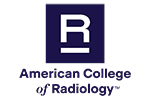Diverticulitis
A diverticulum is a small pouch that forms in the wall of the colon. Diverticulitis occurs when that pouch becomes infected and/or inflamed. Symptoms include pain, fever, and chills. Left untreated, it can worsen and lead to an abscess or bowel obstruction. It can also create a hole in your colon that connects to other structures, such as your bladder or other parts of your intestines. This connection is called a fistula and may require surgery to fix.
Doctors often diagnose diverticulitis using a computed tomography (CT) scan of your abdomen and pelvis. It is best to perform the scan with intravenous (IV) contrast when possible. Many centers will also ask that you drink a form of oral contrast. Both contrast materials make the intestinal tract easier to see. Mild cases may be treated with rest, oral antibiotics, and a liquid diet. More severe cases may require IV antibiotics or surgery if complications occur.
What is diverticulitis?
Small outpouchings in your large bowel are very common in patients over age 50, a condition known as diverticulosis. This usually causes no symptoms. Diverticulitis occurs when one of those pouches becomes inflamed and/or infected. This most commonly involves a lower part of your bowel called the sigmoid colon.
When a pouch is inflamed, it usually causes pain and tenderness in the lower left abdomen. Left untreated, it can worsen and lead to an abscess or bowel obstruction. It can also create a hole in your colon that connects to other structures, such as your bladder or other parts of your intestines. This connection is called a fistula. Sometimes, inflammation irritates nearby blood vessels and causes bleeding into the large bowel. This is rare and will usually present with a large amount of red or maroon color stool. Repeated episodes of diverticulitis can cause scarring which can narrow the large bowel and cause an obstruction.
Doctors do not know the exact cause of diverticulitis. Studies link it to obesity, lack of exercise, smoking, and certain medications. These medications include steroids and nonsteroidal anti-inflammatory drugs (NSAIDs), such as aspirin and ibuprofen. The condition is more common in men than in women. Your risk for the condition increases after age 50.
How is diverticulitis diagnosed and evaluated?
Diverticulitis symptoms can be similar to those of colitis (larger segment of colon inflammation). Diverticulitis usually causes pain in the lower left part of your abdomen while appendicitis usually causes pain in the lower right part of your abdomen. Timely, accurate diagnosis is very important because treatments for these conditions differ. Your doctor may diagnose your condition using:
- Abdominal and Pelvic CT: A CT scan is the best test to diagnose diverticulitis. It can also help determine the severity of the condition and guide treatment. You may receive an intravenous (IV) injection of contrast material. You may also drink an oral contrast material one hour before your scan. Both materials help the radiologist to better see your intestines and abdominal organs.
- Colonoscopy: A small camera views the colon's interior to see the inflamed, infected pouches.
- Ultrasound-Pelvis: Ultrasound creates pictures of the abdominal organs without using ionizing radiation. However, ultrasound images lack the detail of CT images and cannot evaluate the intestines as well as CT.
- X-ray - Lower GI tract: Your doctor may use x-ray to assess for complications from diverticulitis.
- Blood and urine tests: Blood tests look for signs of infection and/or inflammation. These signs may include high white blood cell counts.
- Pregnancy test: If you are of childbearing age, your doctor may ask you to take a pregnancy test. This will help rule out pregnancy as a cause of abdominal pain.
How is diverticulitis treated?
Treatment depends on how severe your symptoms are and whether you have any complications. You may have a mild case without complications. If so, your doctor may prescribe rest, oral antibiotics, and a liquid diet. If symptoms ease in a few days, you will gradually return to solid food.
If your case is more severe, your doctor may recommend admission into the hospital to receive IV antibiotics. The doctor may also ask you to fast for a few days before returning to a normal diet.
You may need colon surgery if you develop complications such as a bowel perforation, abscess, fistula, or intestinal obstruction. An interventional radiologist may drain an abscess through a minimally invasive procedure. Your doctor may treat any active bleeding by doing an angiogram and blocking the bleeding blood vessel. Patients with recurring diverticulitis or those who have a narrowing of the large bowel from repeated episodes of inflammation may also need surgery.
Which test, procedure or treatment is best for me?
This page was reviewed on October 14, 2024



